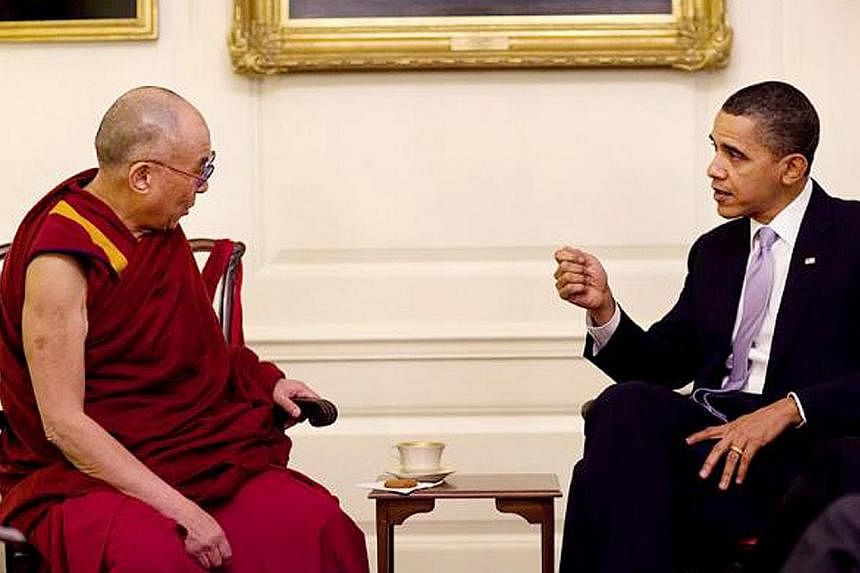WASHINGTON, Jan 30 (Reuters) - US President Barack Obama and the Dalai Lama are scheduled to attend the US National Prayer Breakfast in Washington next week, but it was unclear if they will hold a private meeting like one last year that angered Beijing.
The White House said Obama would deliver remarks at the Feb 5 event about the importance of upholding religious freedom and that the organisers had also invited the Dalai Lama.
A congressional aide said the Tibetan spiritual leader had confirmed he would attend.
Asked if there was any plan for a private meeting with the Dalai Lama, White House spokeswoman Bernadette Meehan said: "As he has done in the past, the President will see many religious leaders at the event, but we don't have any specific meeting with the Dalai Lama to announce."
White House deputy spokesman Patrick Ventrell said the President had "a great relationship with the Dalai Lama.
"They have met three times including just last February. The President is a strong supporter of the Dalai Lama's teachings and preserving Tibet's unique religious, cultural and linguistic traditions."
Obama held low-key talks with the Dalai Lama in Washington last February and the meeting greatly angered Beijing, which had warned that it would damage ties.
Beijing calls the Dalai Lama, who fled to India after a failed uprising in 1959, a "wolf in sheep's clothing" who seeks to use violent methods to establish an independent Tibet.
The Dalai Lama says he only wants genuine autonomy for Tibet and denies advocating violence or independence.
Human rights activists say China tramples on religious freedom and culture in Tibet, which it has ruled strictly since People's Liberation Army troops "peacefully liberated" the region in 1950.
China rejects such criticism, saying its rule ended serfdom in Tibet and brought development to a backward, poverty-stricken region.

